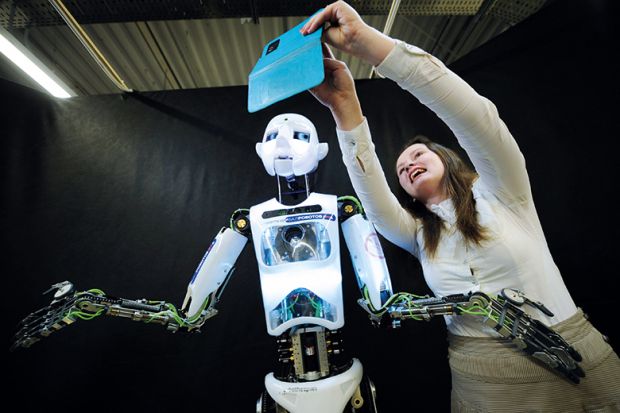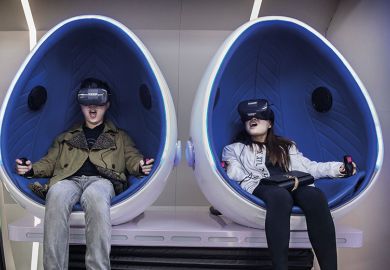The use of artificial intelligence and the “next-generation” of virtual learning environments (VLEs) are two areas of technology that have been forecast to have a major impact on higher education in the future, according to the expert panel of a major new report.
The NMC Horizon Report: 2017 Higher Education Edition is produced by the New Media Consortium – a community of hundreds of universities, colleges, museums and research organisations driving innovation across their campuses – and is the flagship publication of the NMC Horizon Project, which analyses emerging technology uptake in education.
Artificial intelligence, the report notes, has the “potential to enhance online learning, adaptive learning software, and research processes in ways that more intuitively respond to and engage with students”.
Samantha Adams Becker, senior director of publications and communications at NMC and the report’s editor, said that the higher education world was already seeing the initial benefits of AI, which was “very much driving” the adaptive learning field.
“If you think about online courses where there may be hundreds of students, it’s currently very difficult for a professor or instructor to maybe get a good grasp on how students not only are performing, but are feeling about the material…as they’re lecturing or a video’s playing,” she said.
“Virtual avatars and chatbots…have the ability to assess that on an individual level, and if the student seems stuck then maybe you can replay part of the video. Or if a student seems bored, it can indicate to the instructor that it’s time to move on to new material.
“Adaptive learning leverages basic AI algorithms to personalise learning and deliver content that students need. They’re learning about students as students learn, which is helpful in informing educators and providing them with datasets to analyse and understand the needs of individuals and their classes as a whole. The possibilities are endless.”
Meanwhile, the next generation of learning management systems (LMS) – also referred to as VLEs – was a topic “entirely new to the Horizon project”, according to Ms Adams Becker.
LMS is a category of software and web applications enabling the online delivery of course materials as well as the tracking and reporting of student participation.
Although they have been in use in higher education for some time to manage and administer online and blended courses – and as a portal for students to access syllabuses, submit assignments or check grades – some experts believe that they are “limited in capacity” and “too narrowly focused on the administration of learning rather than the learning itself”, the report notes.
“Next-generation LMS refers to the development of more flexible spaces that support personalisation, meet universal design standards, and play a larger role in formative learning assessment,” the report states.
Ms Adams Becker said that the technology would enable educational leaders at universities to “unbundle” all the components of the learning experience and allow them to repurpose content and educational apps in “unique and compelling ways”.
Register to continue
Why register?
- Registration is free and only takes a moment
- Once registered, you can read 3 articles a month
- Sign up for our newsletter
Subscribe
Or subscribe for unlimited access to:
- Unlimited access to news, views, insights & reviews
- Digital editions
- Digital access to THE’s university and college rankings analysis
Already registered or a current subscriber?




